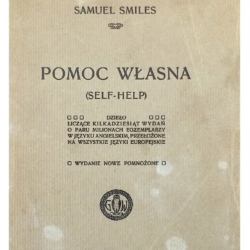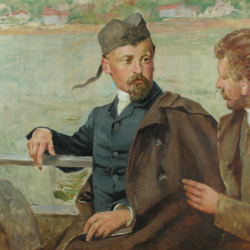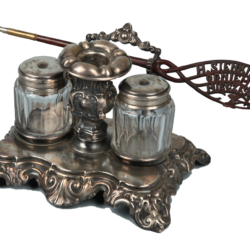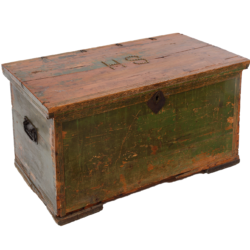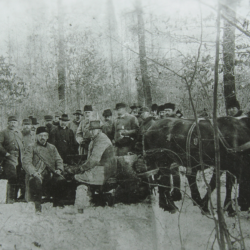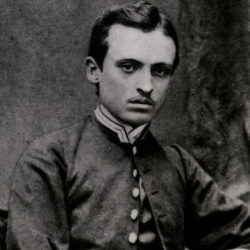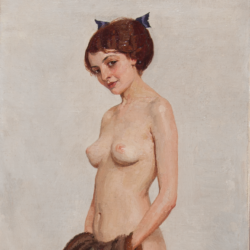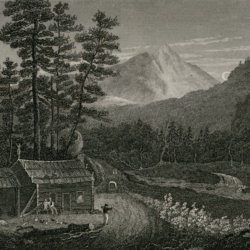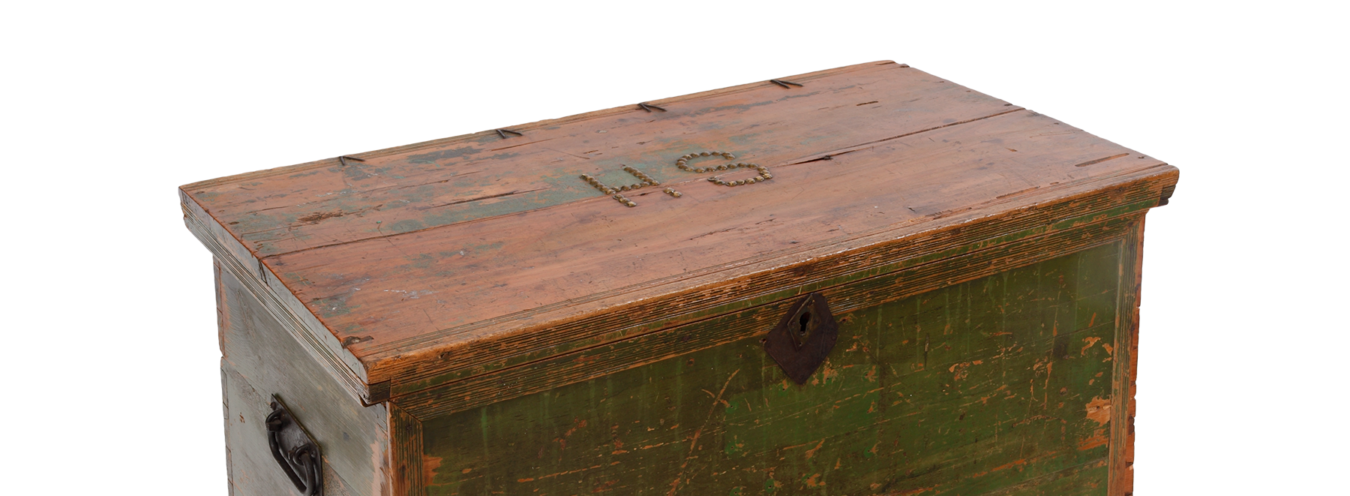
The Story about Growing Up (Entwicklungsroman)
The key moment in the plot of Listy z podróży do Ameryki (Letters from the Journey to America) is, no doubt, the arrival in the Santa Ana Mountains and tasting the real trapper life, the fact that the narrator mentioned with a certain solemnity:
Today, it seems to me that my trip started only when I had arrived in those mountains. Because, how could one use the term “trip” to describe crossing the seas in great ships or the grasslands in comfortable Pullman cars … – furthermore, staying in the hotels, sightseeing the cities, etc.? What is the role of such a civilized scholarly traveler? He is carried around like a travelling trunk – that’s it. The only active role that he plays is spending money. But in those mountains, almost uninhabited, or at least remaining out of the scope of civilization, the role of the traveler is completely different and unconditionally active. Your only passport and your ticket is your gun; the only way of transportation – your own feet or a half-wild mustang, […] you get warm only if you make fire; you eat what you have hunted; you sleep with one eye open and searching through the dangerous depths of darkness […].
To cut a long story short, you travel like a real man; all the elements of your bravery, not wasted by life in the city, you start to play with danger. Everything that happens, happens thanks to you, thanks to your bravery, vivacity, and caution. You cannot be passive even for a moment. And one more thing: you not only watch but also discover. You have to admit that only this kind of trip can be called a real trip, active and creative. (p. 183, emphasis – A.B.)
This experience contrasts starkly with the consciously ironic auto-creation presented at the beginning – the image of a rookie, even an emotional schoolboy, who would gladly feel like a protagonist of an opera upon seeing the famous cliffs of Dover but whose experience is disturbed by the rain:
And but for the lashing rain, you could attune to the ominous majesty of the view, open the soul to tragic impressions, recognize yourself as having an exceptionally wild nature, like some opera protagonist, frown and sing, “Let the crashing waves roar!” and think to yourself, “I wish my friends could see me now.” You would at least be in the right place. But to sing, “Let the crashing waves roar!” while wearing wellingtons and carrying an umbrella is completely unbecoming. (pp. 25–26)
Litwos was fed on the popular literature of his era – adventure stories from the Wild West, on the basis of which he formed the images of Indians, trappers, and cowboys. In his eyes, the rafters on the Mississippi “constitute a perfect example of an excellent kind of frontier Americans, living on the border of civilization and the desert, whom I have read so much about in the novels by Cooper, Bret-Hart, and others.” (p. 102).
In the first letters, he willingly showed his own insecurity and apprehension, expressed in his attitude towards a duel and towards the threat of violence. The fear of knight Zielonogłowski’s “spade of the fathers” is later contrasted with the composure presented by the journalist in the Californian wilderness when he opposed the Mexican caballero or in his reply to the warnings against his lonely reconnaissance in Wyoming, in the area controlled by Indians (“He will kill you” “All right!”, p. 305).
The narrator-protagonist did not fail to stress his original lack of perfection by admitting to his susceptibility to diseases (such as seasickness – embarrassing for a globetrotter). He also did not conceal the lack of knowledge (the proof of which is the lack of knowledge of English and Spanish – the cause of comical situations, as well as problems with geography):
Even though as a result of my acquaintance with a certain young translator of Guthe’s manual on geography, my knowledge of geography is comparable to the knowledge of an average third-grader, hoping for the promotion to the fourth grade, I must admit that I believed America, or at least the United States, to be a far warmer place. (p. 87)
This last quote in particular is a typical exaggeration – an adult man who had crossed the Atlantic and is just learning about the attractions and inconveniences of famous American railways joining the two ends of the continent compares himself to a schoolboy, and not a very bright one.
Building his persona of a “European in the Wild West”, he did not even conceal his lack of dexterity, and in order to achieve an additional comic effect, he wrote about himself in third person. And so, in Anaheim, a certain “writer from Warsaw, a truly bad shooter, who happened to visit this area,” disturbed the starlings feeding on grapes. No one else shot the birds as they are useful in killing insects[1].
Incidentally, Sienkiewicz proudly corrected this last piece of information in a private letter to the editor, written in November 1876: “In my last letter, I presented myself as a bad shooter, which was unnecessary. I have a good eye, a steady hand, a good Henry rifle, and I am quite a decent shooter.”[2].
“The American experiment” seems to be the test of hard life for the mama’s boy. It consists in testing oneself in a foreign environment by (at least theoretically) using only one’s own strengths and skills, by practicing the body and the mind, mainly by perfecting one’s hunting skills, with hunting being seen as the most primal and the most manly:
Shooting all days, from morning till evening, and sometimes even at night, I was getting more and more proficient. The progress in my hunting skills was aided by the surprisingly fast improvement of my sight and hearing. I must admit that hygienic conditions were favorable, too. While in Warsaw, I used to write at nights until three or four o’clock in the morning; here I went to sleep at sunset, and got up at dawn. But the main cause of this improvement of my senses was connected with the kind of life I was living – bound with the wilderness and the forest. The need to search the surroundings with my sight, peering through the thicket of the forest and the darkness of rock rifts, rapt attention and the necessary precision of these actions: this is the real practice, thanks to which, after a couple of months, the senses improved and became as sharp as a razor. (p. 210, emphasis. – A.B)
His initially unfavorable remarks concerning America and Americans, voiced in Listy z podróży… changed with time, and were accompanied by the mentions of self-development and growing physical strength, especially during his stay in the canyon in the Santa Ana mountains, under the supervision of Jack Harrison, the squatter. The stages of the growing independence were marked by the progress in taming a mustang (unfortunately, the mustang was not caught but bought from Neblung), which was supposed to provide the narrator with mobility and thus – freedom. Above all, however, hunting for animals that were more difficult to shoot was identified with reaching the next stages of masculinity:
I had been shooting water birds in Sebastopol on the Consumnes River for several months, partridges and hare near Orange, coyotes and sea birds in Landing, but this was the first time I shot such a big animal, twice in size of our roe deer.(p. 206)
“The rookie hunter” was already able to control drowsiness and impatience so that, in the morning, he could shoot a huge deer at the waterhole, and accept laconic praise from his host (“All right!” – p. 106). The crowning achievement in this process of self-development was the hunting trip for grizzly bear with the squatters from Pleasants’ estate, and then the grand search for bison in Wyoming.
Przypisy
- “As far as the writer is concerned, he rarely causes any calamity, but often scares the living daylights out of somebody, especially since it’s impossible to avoid him and to know where he is and where he isn’t – he roams the fields, vineyards, bushes. In one word, even if he hasn’t been invited, he is sure to appear.” (p. 163).
- H. Sienkiewicz, Listy [Letters], vol. 3, part 2, op. cit., p. 454.

